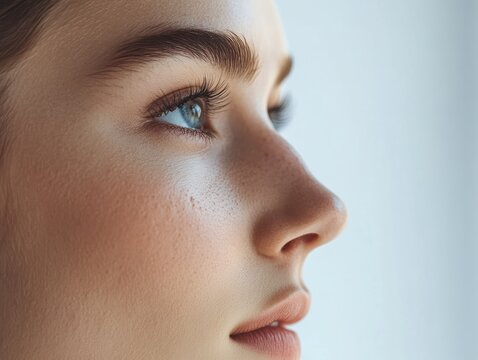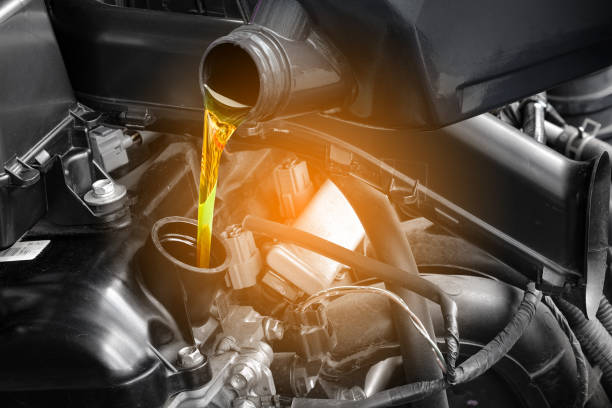Undergoing rhinoplasty in Dubai(تجميل الأنف في دبي) is a popular choice for those seeking both cosmetic and functional improvements to their nose. With Dubai’s advanced medical facilities and renowned surgeons, it’s no wonder that so many individuals trust the city for their nose reshaping procedures. However, achieving the best results doesn’t end in the operating room. What you do—or avoid—after surgery is just as important. Whether you’re healing from a minor correction or a major reconstruction, understanding the recovery process is crucial to ensure optimal results and avoid complications.

Why Post-Surgery Care Matters:
The nose is a delicate structure, and after rhinoplasty, it’s in a vulnerable state. Even the slightest pressure or incorrect movement can alter results or prolong recovery. Adhering to the right aftercare routine—and more importantly, knowing what not to do—will significantly affect how well you heal and how your final results appear.
Activities and Habits to Avoid After Rhinoplasty:
Touching or Bumping Your Nose:
Your nose may feel itchy, swollen, or even numb in the days following surgery. Resist the urge to touch, poke, or bump it:
-
Avoid rubbing or scratching your nose, even lightly.
-
Be cautious in crowded places or with pets around.
-
Don’t let others (especially children) accidentally touch your face.
Sleeping the Wrong Way:
The way you sleep after surgery can make a major difference in your recovery:
-
Always sleep on your back with your head elevated.
-
Use pillows or a wedge to prevent rolling onto your side.
-
Avoid sleeping with pets or small children who may nudge your face.
Wearing Glasses Too Soon:
Glasses (including sunglasses) can put unnecessary pressure on your healing nasal bridge:
-
Avoid wearing any kind of glasses for at least 4–6 weeks post-surgery.
-
If you must wear them, ask your surgeon about taping them to your forehead.
-
Opt for contact lenses if possible during recovery.
Ignoring Sun Protection:
Direct sun exposure can damage healing skin and cause long-lasting discoloration:
-
Always wear a wide-brimmed hat when outdoors.
-
Use a strong SPF (at least 30) even when it’s cloudy.
-
Stay indoors during peak sunlight hours (10 a.m. – 4 p.m.).
Blowing Your Nose:
It’s common to feel congested after rhinoplasty, but blowing your nose is a strict no:
-
Blowing can damage delicate internal sutures and cause bleeding.
-
Use saline sprays (if recommended) to ease discomfort.
-
Gently dab your nostrils instead of blowing.
Lifestyle Changes That Support Recovery:
Avoiding Strenuous Physical Activities:
Physical exertion can raise your blood pressure and increase the risk of bleeding:
-
Skip gym workouts, running, and heavy lifting for at least 3–4 weeks.
-
Avoid bending over or straining in any way.
-
Gentle walking is allowed, but listen to your body.
Holding Off on Smoking and Alcohol:
Both smoking and alcohol can interfere with healing and increase the risk of complications:
-
Nicotine reduces oxygen flow, slowing down tissue repair.
-
Alcohol can thin the blood, increasing bruising and swelling.
-
It’s best to avoid both for at least 2–3 weeks post-op.
Skipping Check-ups:
Follow-up appointments are essential to monitor healing and adjust care if needed:
-
Don’t cancel or delay visits, even if you feel fine.
-
Your surgeon may notice subtle signs of trouble before you do.
-
Post-op care is part of the complete rhinoplasty journey.
Emotional Triggers and Expectations:
Obsessing Over Immediate Results:
It takes time for the swelling to fully subside and for your final nose shape to emerge:
-
Don’t panic if your nose looks swollen or uneven in the first few weeks.
-
Be patient—final results can take up to 12 months.
-
Avoid comparing your progress to others online.
Letting Stress Affect Your Healing:
Stress releases cortisol, which can slow healing:
-
Prioritize rest and mindfulness.
-
Use this recovery time as a moment to unplug.
-
Lean on your support system for help and encouragement.
Diet Considerations Post-Rhinoplasty:
Skipping Proper Nutrition:
Your body needs the right fuel to recover well:
-
Eat a balanced diet rich in protein, vitamins C and A, and zinc.
-
Drink plenty of water to stay hydrated and reduce swelling.
-
Avoid overly salty foods, which can worsen swelling.
Cosmetic Concerns After Rhinoplasty:
Applying Makeup Too Soon:
You may be eager to return to your usual routine, but your skin needs a break:
-
Wait until your surgeon approves wearing makeup, especially around the nose.
-
Avoid makeup products with strong fragrances or chemicals during recovery.
-
If covering bruising, opt for gentle, hypoallergenic products.
Returning to Work or Social Events Too Quickly:
Give yourself the time and space to rest and heal without pressure:
-
Most people take 1–2 weeks off from work, depending on their job.
-
Avoid events where you may feel pressured to explain bruising or swelling.
-
Remember: rushing back into a busy schedule can delay healing.
The Unique Experience of Rhinoplasty in Dubai:
Getting rhinoplasty (تجميل الأنف) means access to world-class surgeons and state-of-the-art clinics, but it also means managing your recovery in a warm climate that can affect healing. Be extra mindful of sun protection, hydration, and avoiding excessive outdoor activity during the hot months.
Dubai’s medical tourism scene ensures privacy, luxury recovery suites, and multilingual care teams—making the healing experience smoother and more personalized. Still, the success of your surgery lies just as much in what you don’t do after the procedure as in what you do.
Final Thoughts on Recovery:
Healing from rhinoplasty requires patience, awareness, and self-care. Avoiding the common pitfalls—from touching your nose to skipping follow-ups—can dramatically improve your outcome. Listen to your surgeon, respect your body’s need for rest, and give yourself the space to recover both physically and emotionally.
By being mindful of what to avoid, you’ll be setting yourself up for a successful recovery and long-lasting results that reflect the skill of your chosen clinic for rhinoplasty in Dubai.


